How to get ALL of your rental deposit back – The Complete Guide
In life, there is no greater rivalry than the rivalry between tenants and landlords.
Tenants think landlords take advantage of them - and they often do to try and squeeze out a few extra bob.

And pretty much every landlord has had a traumatic experience with a tenant that trashed their place and then left without paying rent. Landlords that experience this are never the same.
You’re a fine, upstanding citizen and tenant, but you’re worried that your embittered landlord is going to rinse you for everything you’re worth. It’s true that without this article, you’d likely be screwed.
You’re here now though, and once you’ve read this, you’ll be well-equipped to deal with even the dodgiest of landlords.
Find storage
Browse storage spaces for rent
Find storageWhat to do when you move in
Just like how you shouldn’t wait for a toothache to start brushing your teeth, you shouldn’t wait until you move out to do your deposit due diligence. Though if you’re about to move out and did 0 due diligence, we still have strategies later on that you can use to retain as much of your deposit as possible.
Go through highly reputable agencies
I know, I know, agencies have a bad reputation too. But at least you can research agencies before committing. Google Reviews won’t give you a complete picture, but they’ll give you some idea of what you can expect.
What you’re looking out for is instances of foul play - i.e. fake testimonials used to cover up just how bad the company is. The easiest way to spot a dodgy agency: they exclusively have 1 star and 5 star reviews - and nothing inbetween.
* The above reviews were taken from a company picked at random that we have no affiliation with or knowledge of. We’re not in any way insinuating that this company partakes in such practises. Instead, we’re just using them to provide you with an example for how you’d sniff out bad actors.
Take pictures

Take pictures before you move your stuff in. It’s a hassle but if you want a legally ironclad way to get ALL your deposit back, this is it.
Take pictures of every nook and cranny - in good light.
If you send the pictures after you’ve moved in, they can accuse you of causing the damage.
This whole process should take you a few hours to complete. Don’t rush it, or you’ll miss areas of the property that are damaged.
Once you have your pictures, send them to the landlord or your agent alongside an email that describes any damage that doesn’t show up in the photos.
Your email should reference the inventory you’ve been provided and highlight any discrepancies between what you see and what the inventory says.
Then put the pics on the cloud. Can be Google Drive or Dropbox, but you want to make sure you can find those photos even if every device you own breaks or is stolen.
Related
Moving House Checklist: Everything You Need to Know
When issues arise, let the landlord know immediately

When something breaks or gets damaged and it doesn’t affect us, we might think it’s best not to bother the landlord. A common example is mold. You see a few of those disappointing black dots and think ‘ah crap, there goes my health!” But then just carry on as you were.
Instead, what you should do is let the landlord know immediately. Your landlord has an obligation to ensure your space is well ventilated. And if you’re holding up your end of the bargain by keeping windows ajar, and you’re still finding mold, your landlord should find ways to improve the ventilation.
But let’s be realistic here, plenty of landlords will make your life a living hell if you try and force them to spend their £££ on renovations and repairs. Even in this instance, though, it’s prudent to let them know so that they become responsible for the repairs. If they discover the damage once you’ve left, you become fully responsible for any repair costs - which is what they’re hoping for!
Keep the property clean
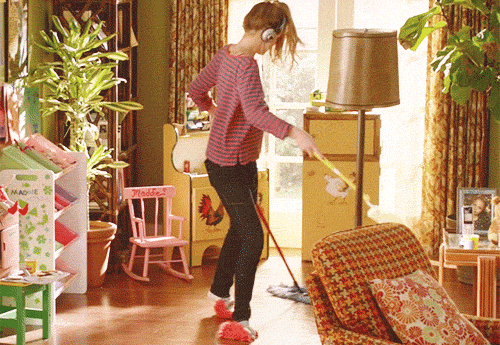
I know, I know, it’s blatantly obvious. But according to ARLA Propertymark, almost 90% of agents said that insufficient cleanliness had caused landlords to withhold tenants’ deposits.
If you’ve always been a bit clumsy, don’t expect that to change overnight. Instead, make sure your environment is clumsy-friendly. So, if you’ve got a white couch or a beige carpet, cover them up with blankets and carpets. That way if you spill anything, you aren’t taking chunks out of your deposit.
Secondly, stains are harder to get out the longer you leave them, so speed is of the essence. Click here to read an awesome article on how to clean practically every stain know to mankind.
And with regards to deep cleaning: unless you have Mr. Muscle himself on speed dial, 3 years of scum build-up will not be leaving when you do. So clean as you go and deep clean every month.
Take photos right before you leave
Your leaving photos should be just as thorough as your moving-in photos. Otherwise, the landlord could blame you for damage that takes place after you move out.
Get a check-out inventory and ask your landlord to sign it - this could include things like the condition of carpets and walls.
It's a good idea to get evidence of the condition of the property when you leave in case you and your landlord disagree on how much deposit you should get back. The evidence will help you argue you should get all or most of your deposit back.
Make sure photos and video are clearly labelled or explained. Include details of:
- what room or area they show
- what date they were taken
- what they prove
Dates of digital copies may be checked. The scheme may disregard undated photos.
If you’re just about to move, and you need cheap, flexible Storage or Parking, check out Stashbee.
Have someone take over your contract
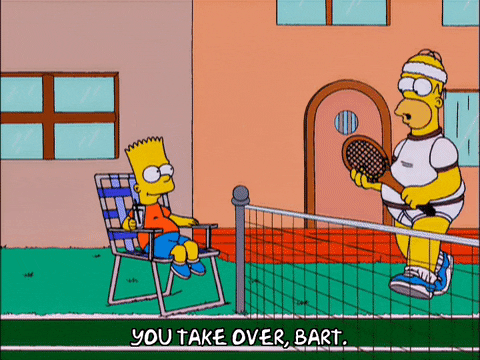
If you have a break clause that requires you to find someone to replace you, often the assumption is that, unless they say otherwise, the inventory remains as it was when you moved in.
This usually means that getting your deposit back becomes a far less viscous and far simpler affair. Sometimes you can even receive your deposit from your replacement prior to them taking over the contract - I’ve actually experienced this.
Every time I’ve broken my contract and found a replacement tenant, I’ve got 100% of my deposit back. And every time I’ve had a landlord (or agency) stand between me and my deposit I’ve had all sorts of problems.
Do everything you can to avoid mould
Another fast way to lose your deposit is to let condensation build up in your rented property. Thankfully, this is easily avoided providing you remember two things: heat and ventilation.
Keeping your home at a constant temperature during the winter months will help reduce the amount of condensation dramatically, as will regular ventilation.
If the windows in your rented accommodation have trickle vents, be sure to leave them open. If not, open the windows daily to allow fresh air to circulate throughout the home and let moist air to escape.
Remember, if you can see condensation on the windows, it's highly likely you'll have condensation elsewhere. Be proactive to ensure there's no build-up of mold or damage to the window frames that could jeopardise your rental deposit.
What to do when the landlord wants to charge you
So your landlord has done a leaving inspection and discovered damage to the property that wasn’t there before you moved in. Either you’re at fault or you’re not, but what you do in each case is distinct. Let’s go through those now.
When you’re actually at fault

When you’re to blame, all that’s left to do is debate the pricing of the products and services the landlord will need to purchase to bring the property back to it’s pre-you state.
Landlords are humans. And just like other humans, sometimes they enjoy partaking in some escapism. Only their escapism entails taking that £20 chip in the crappy wardrobe and charging you £3650 to “have it repaired.” Only thing is, we all know there will be absolutely no repairing going on. Just some cheeky pocketing of your hard earned cash money!
Another way in which landlords are like other humans: they value their time. So if you believe they’re inflating costs, the only strategy left to you is to make some noise and back it up with data. Do some research and try and identify a wardrobe of similar value. Then look for a few companies that offer repairs and get a few quotes. Average out the quotes. And if your landlord is quoting much higher than you’ve found, highlight this.
As the ombudsman holds your deposit, the landlord won’t receive any money from you until resolution has been reached. If they really do have expenses they need to cover after you move out, they’ll want to reach a compromise relatively quickly.
Given this, if you don’t need the money immediately and can wait out procedures, you’ll have a great deal of bargaining power.
When you’re not at fault
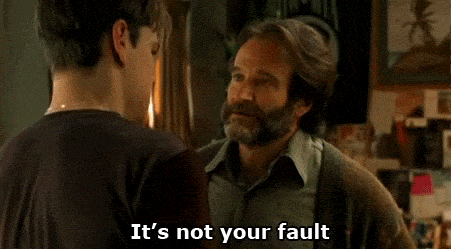
When you’re not at fault, your photos are your best friend. Your words won’t hold much weight, but if you can show that the damage the landlord is claiming was your fault, was there when you moved in, it’s hard to dispute that.
Some landlords will dig in their heels. And they do this for one reason: they know that in most instances, even if they have nothing on you, they can squeeze out some extra money from you - even if things go to the ombudsman.
Just like the “that was definitely my fault” case, having low time-sensitivity will help you recover the biggest % of your deposit.
Related
6 Tips to Manage Anxiety When Moving House
Getting your deposit back
How long does it take to get my deposit back?
Usually a few weeks if there are only a few disputes. When there is a deadlock between landlord and tenant, the process can take multiple weeks.
What things can my landlord take my deposit for?
Your landlord or letting agent should tell you why they're taking money off. Ask them to give you their reasons in writing - that way you can refer back to them if you need to take action to get your deposit back.
What things can my landlord NOT take my deposit for?
Your landlord or letting agent can't take money from your deposit for 'reasonable wear and tear'. This means things that gradually get worse or need replacing over time, for example paintwork, or a piece of furniture.
Your landlord also can't take money from your deposit, for example, to:
- replace a worn carpet with a new one if it's worn out gradually over time
- fix any damage caused by a repair they didn't do when they should have, for example a leak you told them about that got worse and damaged the floor
- decorate a whole room if there are a few scuff marks on a wall that have appeared while you've lived in the property
Is my deposit protected?
The three main Deposit Protection Services are:
The action you take against your landlord will depend on whether your deposit is protected in a tenancy deposit scheme (TDP).
What is ADR and how do I use it?
ADR - Alternative Dispute Resolution - is an unbiased process used by Deposit Schemes to help tenants and landlords reach resolution when a deposit dispute occurs.
Incredibly, this service is free and easy to use.
Things to note:
- You’ll need to make your claim to the ADR within 3 months of moving out
- Your landlord can refuse to use the service. In this case, going to court is likely to be the only way to reach resolution
What happens if I use an ADR service?
After the ADR service gets evidence from both you and your landlord, they’ll send you a final decision - usually within 6 weeks by email or letter.
The ADR’s verdict is final. You and your landlord will have to accept whatever the ADR service decides - you won't be able to challenge it.
Check your scheme's website to find out how to use their ADR service.
Look out for unfair terms in your tenancy agreement
Cleaning is the most common place where landlords and Agencies try and slip in unfair terms.
As a tenant, you must only clean the property to a professional standard if the property was cleaned to a professional standard before you moved in.
If you see anything along the lines of: “tenant must pay for professional cleaning.” This is an example of an unfair term and cannot be enforced. The only thing that should matter to a landlord is that their property is returned to them in the same state it was prior to you moving in (minus reasonable wear and tear). HOW this gets done, is none of their business.
Often landlords work in cahoots with a particular cleaning company that they try and bully you into using. And they’ll reference the contract if you suggest doing it yourself or using a cheaper company. Just remember that this is not a legal requirement.
Related
10 Expert House Moving Tips
All you need to know about inspections
When should the inspection happen?
The check-out inspection is often done on the last day of the tenancy as this is the date you are expected to give the property back.
Your agent cannot insist on an early inspection or that you hand your keys back before the legal end of your tenancy. For example, if your tenancy ends on a weekend but they want to inspect and take the keys back on a weekday.
Pre-check out inspections
Not super common, but some landlords do like pre check-out inspections.
This is so they can:
- assess how much work might be needed before they re-let the property
- tell tenants about anything they think should be put right to get a full deposit refund
If a pre check-out inspection is offered, it’s a Godsend and I’d recommend you agree to it. Why? Because it gives you a lay of the land nice and early. You’ll know exactly what the landlord will deduct from your deposit and why. As landlords often inflate the price of repairs and replacements, you’ll have the time to repair things yourself and find cheap replacements for broken items before you leave.
Additionally, knowing early how much of your deposit you’ll get back means you won’t be financially blindsided when you leave. This allows you to prepare: start tightening those pockets; take on some extra work; sell some unused tech items or rent out your parking space on Stashbee.
Inspections after you move out
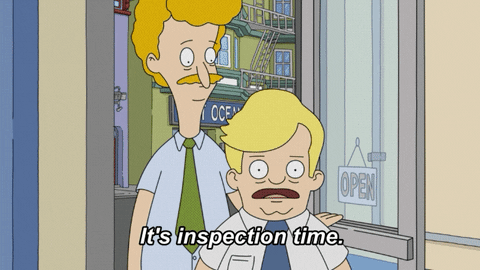
If you want to ensure you’re treated fairly, join the landlord or Agent when they do their final inspection. It’s a real faff but means there will be much less shady business, and you’ll be able to quickly resolve disputes there and then. Email is a much slower form of communication!
If you disagree on anything about the cleanliness or condition of the property, ensure your comments are noted in the check-out report.
What to do if your landlord will not do an inspection
My advice in this instance is to do your own inspection on the last day of your contract after you’ve moved everything out. Take photos and videos of the property and reference the move-in inventory whilst doing it to ensure any changes are just down to reasonable wear and tear.
Do know that a landlord who refuses to do an inspection has no leg to stand on in the eyes of the law when it comes to your deposit.
What happens at the inspection?
Either the landlord will do the inspection themselves or use an independent inventory clerk. Pray for a clerk because they’ll usually be impartial - unless of course ‘clerk’ actually means “the landlord’s uncle who owns a % of the property”. Most of the disputes arise because both parties are partial - i.e. they win when the other party loses.
What if there is no check-in report?
Your landlord needs a reason to make deductions from your deposit.
It will be much harder for them to charge you for things like cleaning or damage if there is no proof of the property's condition when you moved in.
Will you get the deposit back at the inspection?
This is highly unlikely. Think about it: is the landlord at all incentivised to be speedy in this regard? No! And so expect them to do it in their own time. It usually takes anywhere from a few days to a few weeks.
If there is a dispute over the return of your deposit, it will take longer.
Get ready for your check-out inspection
landlords will charge you through the teeth to replace broken or damaged items. Maybe you’re praying they’ll just not notice that the bath has completely shattered after your Halloween Party. But, every issue a landlord finds is money in their bank, so trust me when I say, they’ll not miss anything. In fact, they’ll usually add a few things on just to see whether you fight it.
So, instead of leaving it to the landlord to replace things, replace them yourself - you’ll save yourself an aneurysm and a good chunk of money.
Ok, now you’re ready for your inspection!
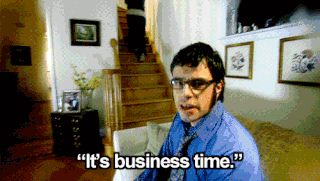
How to raise a dispute
You can raise a dispute through your scheme's website or over the phone:
- Deposit Protection Service (DPS) - 0330 303 0030
- Tenancy Deposit Scheme (TDS) - 0300 037 1000
- mydeposits - 0333 321 9401
Emails and other messages as evidence
When looking to dispute deductions, make sure to collect all emails and messages. These will be fine weapons in your arsenal. Things to look out for:
- repair issues you reported
- any notice you gave to end the tenancy
- agreements made between you and the landlord
The judo move you won’t find anywhere else
Get in touch with the previous tenant. And ask them if any of the damage the landlord is deducting for was there during their tenancy.
The landlord says YOU were the cause for mold. That it never happened previously. The previous tenant begs to differ and can back it up with emails and photos.
The landlord said you broke their favourite chair that was passed down from generation to generation. The previous tenant remembers it always being a rickety piece of crap that was held together with blue tack.
Checkmate, landlord, Checkmate.
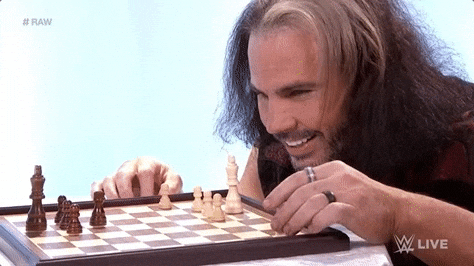
How to dispute unfair deductions
You can challenge any unfair deductions from your deposit by following the steps below.
Contact your landlord or agent
Write to your landlord or agent to tell them that you do not agree with the deductions. Show them your evidence and explain the reasons you do not agree. The more detailed you can be, the more robust your case.
Keep copies of any emails you send and get proof that they were received. Here’s how:
- Download Boomerang
- Sign up
- Go to Gmail
- Click “Compose”
- Then click “Track”

Here’s an effective email template you can use when disputing unfair deposit deducations:
[Subject line: Refund of deposit balance]
Body:
“Hi [landlord or Agent’s name],
I am writing to ask you to return the rest of my deposit for [your previous address].
My tenancy ended on [date].
The rent was paid on time every month until the end of my tenancy.
I paid a security deposit of £xxx. So far, only £xxx has been returned to me.
[If you believe you’ve not damaged anything:]
However, according to my calculations, I should have been returned £yyy. I’ve attached a document that highlights the discrepancy between what the Check-out Report states and the actual condition of the property.
[If you have damaged things but they can be repaired or replaced much cheaper than the landlord has stated:]
However, according to my calculations, I should have been returned £yyy. I’ve attached a document that highlights the discrepancy between what you’ve asked for to make repairs and replacements and the prices I’ve been able to find from a number of vendors.
[For both cases, include the following:]
Please pay the balance of my deposit: £yyy.
If you do not intend to return this money, please explain your reasons in writing. Please list any financial losses and send any receipts or invoices.
You protected my deposit with [name of scheme]. I propose we use their dispute resolution service if we cannot agree an amount to be returned.
I look forward to your reply within 10 days.
Many thanks,
[Your name]”
If you’re disputing some of the deposit, here’s the good news
Your landlord should still refund any amount that is not disputed promptly when the tenancy ends.
Read that again.
I’ve experienced at least 3 landlords holding onto ALL of my deposit until disputes were settled. As a young, struggling musician, having to survive without that money was extremely difficult. And knowing my rights would’ve really helped.
How long does it take to get a deposit refund?
Some of this depends on how on top of communications you are. Ask for your deposit back as soon as you and your landlord have agreed on the amount. And if the days slip by and you hear nothing back, don’t be afraid to chase.
Here’s a handy template you can copy into an email to your landlord or letting agent:
[Subject line: You ABSOLUTE THIEF. Give me my money back!]
***THE ABOVE WAS A JOKE. PLEASE DON’T USE IT!!***
[Subject line: Return of my deposit]
Body:
“Hi [landlord or agent name],
I'm contacting you about the refund of my tenancy deposit. I know we agreed that you’d return £[deposit amount that the landlord agreed to return].
I still haven’t received my deposit and it’s been [Number of days since your contract ended] since my contract ended.
The property has been left in good order and the rent was fully paid every month.
Please refund the full £[deposit amount that the landlord agreed to return] within 10 days of receiving this email.
Many thanks,
[Your name]”
Your landlord should respond within this time. If they don’t, either they’re in a coma or they’re trying to screw you over. Time to get the big guns out and threaten legal action!
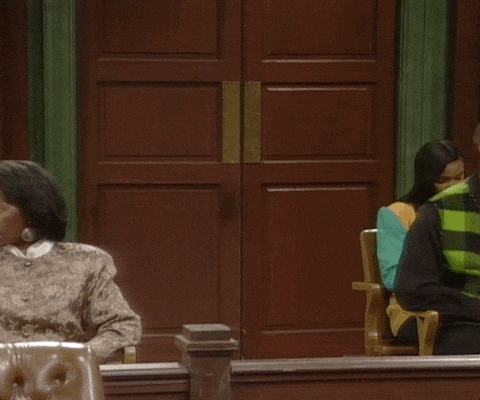
Should you consider court action?
You’ll find lots of advice online on how to take a landlord to court. It’s there if you really want it. But, my advice here would almost always be "no" for the following reasons:
- You’ll spend more on legal action than you’ll get back. Sure, if you win, you get your legal fees back, but you still have to find the money to go to court. And if you lose, you have to pay for the landlord's legal fees. Don’t forget - if a deposit is a meaningful amount of money for you, court fees certainly will be too.
- Your physical and mental health is surely worth more than the few hundred bucks you could wrangle back
- Life is short, and court cases are long. Spending half a year or more in court for a few bob seems like a poor way to spend what little time we have on this big beautiful rock. You can make back whatever money is lost in a month or two - depending on how much you earn. As much as it might pain you to not get sweet revenge, sometimes it’s best to just take it on the chin and move on.
The one caveat: you CAN use the threat of legal action to get your landlord to acquiesce and give you your deposit back. You might want to seem lawyery a few months prior to making this move though. And look like you’re wealthy enough to follow through.
So wear suits. Use big words. Walk with confidence and randomly email your landlord and say “I was just doing some evening reading on the Landlord and Tenant Act 1985 and thought of you. Section 2.3 is particularly illuminating.
Look, I know that was a poor attempt to sound like a lawyer, but unless you can do any better, your threats might not be taken too seriously!
Related
Change of Address: The Ultimate Guide
Final thoughts on tenancy deposits
Right now you’re probably feeling a bit anxious. The landlord holds most of the power in the tenancy deposit return process and so it’s easy to feel powerless.
It’s important that you stay calm and patient in these situations. The best way to do so is to not need the money. So, see if you can borrow money from a friend or family member. Or take on some extra shifts at work.
If you get desperate for the return of your deposit, you’ll act in ways that damage your likelihood of ever receiving an amount you’re happy with. You want to be firm but fair with your landlord, not explosive and aggressive.
Additionally, if you have the money to breathe, you’ll have the patience to persist over weeks and months. When they realise you’re not going away until you get your money, all but the most insane landlord will just give up. The weekly battles aren’t worth a few hundred bob.
Lastly, if the money is not critical to your well-being, YOU’LL give up when you realise you’ve had the misfortune of doing business with one of those insane landlords.
If another worry doing this transition is where you’re going to store all your excess stuff, you should check out Stashbee storage - it’s by far the cheapest on the market.
Find storage
Browse storage spaces for rent
Find storageYasin
Written 17th Apr 2023
